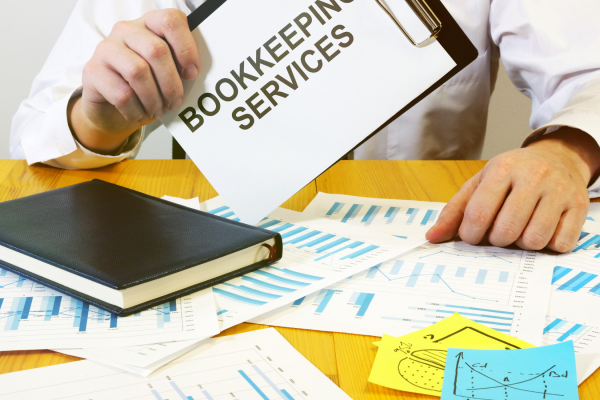There are several instances that prompt QuickBooks users to migrate data, including upgrading to a different version of the software, switching to another workstation, etc. In any of these cases, the most important thing to keep in mind is to prepare carefully for the migration.
Your company file contains a huge amount of information, such as inventory, employee data, accounting records, customer lists, and banking history.
- Backup Your Data
The first step in any migration is to back up your data. This is essential to ensure that your data doesn’t get lost in the process and will make it easier to restore your files if necessary. There are several ways to back up your QuickBooks data, including using the built-in feature or third-party software. Whatever method you choose, it’s important to do it regularly to prevent data loss and keep your accounting system running smoothly.
When it comes to the security of your QuickBooks data and application, you should consider a provider that offers security measures such as regular backups, disaster recovery services, and access control. This will protect your information and data from unauthorized access and help you avoid potential data breaches and other issues that could put your business at risk.
Migrating your QuickBooks data can be a complex and time-consuming process. However, with the right tools and strategies, you can make the transition as seamless as possible. To begin, you’ll need to create a backup of your existing company file. You can do this by selecting the File menu and choosing Utilities, then Rebuild Data. Once the rebuild is complete, you’ll need to verify your data. This can be done by selecting the Utilities menu again and then Selecting Verify Data.
You should also take into account the complexity of your company file when preparing for your migration. A company file contains all of the information about your business, including inventory, employees, banking history, accounting records, and customer lists. Large-sized companies often have more complex company files due to their massive stock, substantial file sizes, and lengthy histories. This can make the migration process more complicated and may require you to seek out expert assistance.
Before migrating your data, be sure you’re familiar with the different features and differences between QuickBooks desktop and online. It’s also important to assess and compare your needs with the functionality and other differences between the two systems. Finally, be sure to consider your company file’s intricacy when deciding whether or not to migrate it.
- Preparation is Key
Depending on the needs of your business, you may need to relocate your QuickBooks company files. There are many reasons why this might happen, including upgrading to a new computer, needing more space for your QuickBooks file, switching from another accounting system, downgrading from QB Enterprise to QB Pro, and more. No matter what the reason, it is important to prepare your data properly before migration.
It is also a good idea to back up your data before you start the process. This way, if something goes wrong during the migration process, you have a backup that you can restore. This will help you save time and money in the long run. It is also a good idea to review and clean up your data before migration, including deleting any unnecessary accounts, fixing errors, and reconciling all of your data. This will help to ensure that your QuickBooks data is accurate and up to date when you migrate.
Businesses that are moving from a desktop version of QuickBooks to a cloud-based version rely on the QuickBooks Migration services to consolidate their accounting data in the new environment. The QB migration services will transfer all existing data from a QuickBooks Windows file to a QB online file, ensuring that the new system will have accurate information for reporting and planning purposes.
Users who are migrating from a desktop version of QuickBooks to QB online can reduce operating costs by eliminating the need for hardware and annual software updates. In addition, a QB online subscription offers a wide range of features that are not available in the desktop version.
If you need to move your QuickBooks company files to a different system, it’s essential to understand how the migration process works. Some information will convert automatically, while other data will need to be manually re-added. For example, the ending financial reports and account balances from the last fiscal year in one file need to match up with the opening balances of the other file.
The best option is to hire a professional to manage the entire migration process and ensure that all your data is safe and secure. A professional can also make sure that your data is migrated to the proper version and has all of the features you need for your business.
- Choose a Solution That’s Right for You
Depending on the specific demands of a business, users can utilize various accounting programs for their digital financial management needs. However, they may need to migrate data between these different systems for diverse reasons, including growing file sizes, switching QB versions, and more. Regardless of the reason, it is essential that they complete the migration process without endangering their valuable financial information. This is where QuickBooks Data Migration comes in.
For a successful migration, it’s important to take the time to prepare your company files. This includes cleaning up your chart of accounts, reconciling all open transactions, and completing the importing of any outstanding payments or sales orders. It is also a good idea to close any non-posting transactions related to bank accounts, inventory, and the payroll system.
Additionally, if your clients are migrating from QuickBooks Desktop to Online, reviewing certain feature differences and file intricacy is a good idea. For example, if your company uses the first-in, first-out (FIFO) inventory method, you will need to adjust the book value of your inventory in QuickBooks Online. You should also consider that QuickBooks Desktop decides the cost of inventory based on the average cost method and not on the actual purchase price of the product, which can lead to an error in the inventory records if you’re not careful.
Another important thing to remember is that a complete transition from QuickBooks Desktop to QuickBooks Online can require significant additional setup in QuickBooks Online. This can include settings, tax rates, inventory management, and more. While your clients can do this on their own, it’s often quicker and more convenient to have the help of a qualified professional.
Whether you’re a bookkeeping professional, a CPA, or an accountant, you can offer your services to assist with the migration of a client’s financial data between QuickBooks Desktop and Online. This is an excellent way to help your clients get started with the cloud-based accounting solution, and it gives you the opportunity to demonstrate the value of your services and build a referral network.
- Get Help
There are a number of reasons why a business might need to move its QuickBooks data. It could be switching between different versions of the software, moving to a new computer, or migrating from another accounting application. Whatever the reason, it’s important to take the time to prepare properly for the migration process. Otherwise, it can be a stressful and time-consuming experience.
One way to make the transition go as smoothly as possible is by hiring a professional QuickBooks migration service. These companies specialize in helping businesses migrate their financial data to and from QuickBooks and other accounting applications. They can help you determine whether a migration is necessary and then work with you to implement a solution that meets your needs.
In addition to providing help with migrations, these companies can also provide ongoing support for your accounting system. This includes things like setting up new users, integrating with other applications, and ensuring your data is secure. They can also help you reduce your operating costs by offering cloud solutions that are designed to be as cost-efficient as possible.
For example, they can offer flexible pricing plans such as pay-as-you-go pricing, which makes it easier to budget for your accounting needs. They can also offer disaster recovery and business continuity services, which ensure that your data is protected in the event of a disruption to your business operations.
The first step in the migration process is to export your QuickBooks file. To do this, log in as the administrator of your QB Desktop company file and select Company > Export Company File to QuickBooks Online. You’ll need to enter your QBO login information, agree to the Terms of Service, and choose which online organization you want to import into. Once the process is complete, you can then follow an assisted setup guide to upload your data to Business Central.
While most of your QuickBooks data will convert when you move to QBO, a few pieces won’t. This is because of differences in how data is handled between the two systems. If you’re concerned about what will or won’t convert, reviewing the list of information that does and doesn’t convert before you start your migration is good.





